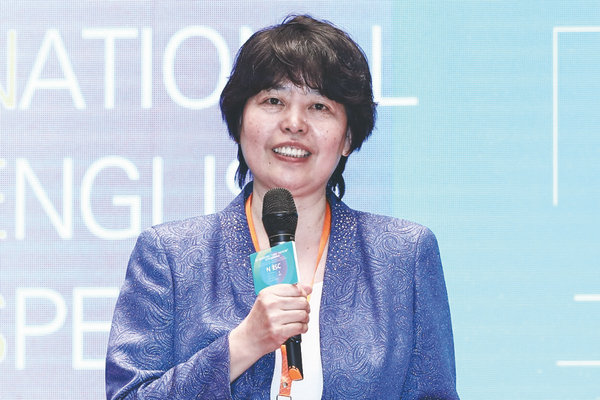Good job, graduates


Editor's note: It's graduation season once again. A new batch of graduates is preparing to step out of the ivory tower and into the real world. How is their job hunting going? Is it better to follow your heart or just take any job that comes your way? Does leaving school spell the end of learning? We interviewed some professors and graduates to find out.

Wu Minsu, professor
Doctoral adviser of the Television School, Communication University of China
Although it was said that this year was going to be a difficult one for new graduate student job hunting — the first one since the end of the pandemic — Wu said her students seem to be having no trouble navigating the job market. But she did notice that their choices were slightly different from those of their predecessors.
They care less about what previous graduates might think of as "staples" — things like the Beijing hukou, or household registration status. "For them, a job that offers hukou is not as appealing as a job that pays well," said Wu.
Also, while previous college graduates in Beijing tended to stay in the city for work, this year's graduates are more willing to look elsewhere and find job opportunities in, for example, the Yangtze River Delta city cluster, including Shanghai and Nanjing, as well as the Guangdong-Hong Kong-Macao Greater Bay Area. Some are also choosing to go back to their hometowns.
Wu believes the reason that her students stand out in the job markets is due to their versatility — international journalism and communication majors have strong English-language skills alongside video filming and editing skills. The video projects they took part in on a daily basis were not small class assignments but key projects organized by the Television School on a state level.
"Students have already engaged in important media work while at school, which means they don't need any extra time to adjust from textbooks to jobs — they can start working right after graduation," said Wu.
For graduates who are hesitant to settle on a job — either because they think it's not good enough for them or it's not what they truly like — Wu always tells them that they should first just aim to get a job, then to choose a job and then to create a job.
"You simply need a job — any job — so you can be financially independent and not living off your parents anymore. After a few years of experience, you'll have more job options — being able to choose a job that you really like. And eventually, when you accumulate enough resources, both financially and skill-wise, you could even start your own business," said Wu.




































